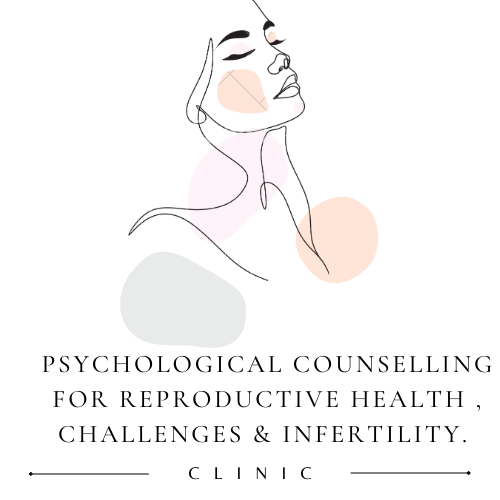
Menopause and mental health
Menopause marks a significant transitional phase in a woman's life, characterized by the cessation of menstrual cycles and hormonal changes. Beyond the physical symptoms commonly associated with menopause, such as hot flashes and night sweats, the impact on mental health is a crucial aspect that often goes unrecognized.
At PCRH we aid in understanding the interplay between hormonal fluctuations and emotional well-being is essential in navigating this life stage.
Our team at PCRH is specialized to dwell into the complexities of menopause and its effects on mental health, offering insights into common symptoms, strategies for management, and the importance of seeking support and treatment options. By shedding light on this intersection, we aim to empower women to prioritize their mental wellness during the menopausal journey.
Menopause and Its Phases
Menopause, often dubbed as nature's way of hitting the 'pause' button on periods, marks the end of a person's menstrual cycles. This stage typically occurs in their late 40s to early 50s and comes with various physical and emotional changes.
Overview of Mental Health Challenges
Menopause isn't just about hot flashes and night sweats; it can also throw some curveballs at mental health. Mood swings, irritability, and feelings of sadness can become uninvited guests during this hormonal rollercoaster ride.
Role of Hormones in Menopausal Mental Health
Hormones, like estrogen and progesterone, play a crucial role in regulating mood and emotions. When these hormonal levels go haywire during menopause, they can wreak havoc on mental well-being.
Common Mental Health Symptoms During Menopause
- Depression: Depression is a common and serious emotional side effect of menopause.
- Anxiety: Many people experience tension, nervousness, worry, and panic attacks during menopause.
- Low mood: People may experience low mood and low self-esteem during and after menopause.
- Irritability: Many people experience an increase in irritability during the early stages of the menopausal transition.
- Other symptoms: Fatigue, Lethargy, hot flashes, night sweats, insomnia, vaginal dryness, sexual dysfunction, cognitive issues and weight gain.


Strategies for Managing Menopausal Mental Health at PCRH ‘Menopause Wellbeing clinic’
i.Medication and Hormone Therapy Options
From antidepressants to hormone replacement therapy, there's a cocktail of medications available to help level out the emotional seesaw that menopause brings. It's like having a personal mood lifeguard to prevent you from drowning in a pool of tears and tirades.
ii. Comprehensive holistic interventions: Lifestyle, Psychotherapeutic Approaches and Psychosocial Counseling
CAM interventions for menopause fall into 2 broad categories: mind-body practices (eg, hypnosis, cognitive behavioral therapy [CBT], relaxation, biofeedback, exercise , mindfulness meditation, and aromatherapy), nutritional and natural products (eg, herbs, vitamins, minerals, and dietary supplements).
Sometimes, all you need is a good old heart-to-heart with a therapist or counselor to navigate the stormy seas of menopausal mental health. Therapy can provide the life jacket you need to stay afloat amidst the hormonal waves, reminding you that you're not alone in this tumultuous journey.
At PCRH, Comprehensive interventions blend in the best of CAM practises & if need be medicinal treatments.
Importance of Seeking Support and Treatment Options

- Role of Healthcare Providers in Menopausal Mental Health
Navigating menopausal mental health can feel like a wild rollercoaster ride, and having a trustworthy healthcare provider by your side can make all the difference. They can offer valuable insights, treatment options, and support tailored to your unique needs. Family counselling is needed too, so that your closed members understand how to help you confidently. - Support Groups and Peer Networks
Connecting with others who are going through similar experiences can provide a sense of comfort and solidarity. Support groups and peer networks offer a safe space to share stories, exchange coping strategies, and remind you that you're never alone in this journey. - Addressing Stigma and Improving Awareness
The stigma surrounding menopausal mental health can be a major roadblock in seeking help and support. By shedding light on the challenges women face in recognizing these issues, we can take a step towards breaking down outdated taboos.
Our team also works for ‘Advocacy and Education programs’ as it plays pivotal roles in raising awareness about menopausal mental health. By championing initiatives that educate the community and empower women to speak up, we can pave the way for a more understanding and inclusive society.
We believe that ‘Knowledge is power, and seeking support is a sign of strength’.By arming yourself with information and reaching out for help when needed, you're taking proactive steps towards embracing mental wellness during menopause.
Our Client feedbacks
Very nice. The session was so good.
It was highly informative and gives proper guidance to uplifting,who need psychological support.
Excellent
This workshop was very knowledgeable and interesting. I am very thankful to you mam for this workshop and I hope you will do this kind of workshop in the future and you will be very happy in staying with yourself.
FAQs
Resources
- https://www.health.harvard.edu/womens-health/menopause-and-mental-health
- https://www.hopkinsmedicine.org/health/wellness-and-prevention/can-menopause-cause-depression
- https://www.chicagoobgyn.com/blog/how-menopause-affects-your-mental-health
- https://www.mentalhealth.org.uk/explore-mental-health/a-z-topics/menopause
